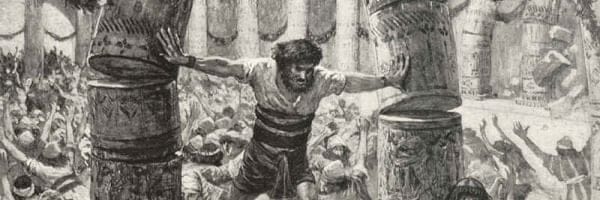Against the Pelagians
Pelagianism is the 5th-century heresy named after Pelagius and was opposed and condemned by St. Augustine, the Council of Carthage (418 AD), and later by the Council of Orange (529 AD) and the Council of Trent (1547 AD).
“[sarcasm] Those bad Pelagians—they believed that God was just and impartial... they believed that if you were going to endure, it had to do with your own will and striving.”
“The Pelagians didn’t deny grace; they just believed everyone got equal grace and had to choose to respond to it.”
“I’m not saying I agree with everything the Pelagians said, but they were the ones who said: ‘If you’re going to overcome, you’ve got to get yourself in gear…’”
“Pelagians were falsely accused of works-righteousness by Catholics and Calvinists because they didn’t believe in irresistible grace.”
Living Faith Christian Fellowship - Mark Q. Bullen,
Sermon from Sun, June 8th, 2025 - (Pentecost Sunday)
Objection 1
Pelagians were wrongly maligned by the Catholic Church. In truth, they upheld God’s justice by teaching that man had free will, equal opportunity, and that salvation depended on one's own striving.
Objection 2
Pelagians did not deny grace but simply denied the idea of “special grace.” They believed that all people had access to the same grace, and it was up to them to use it rightly.
Objection 3
Augustine unjustly opposed Pelagius and introduced deterministic ideas. The Catholic Church, by following Augustine, adopted a view of grace that makes God unjust and man a puppet.
Sed Contra (On the contrary):
The Council of Carthage (418 AD) declared:
“If anyone says that Adam’s sin injured only himself and not his descendants, let him be anathema.”
And again, the Council of Orange (529 AD):
“If anyone denies that grace is necessary for every good act, even the beginning of faith, let him be anathema.”
St. Paul affirms:
“By grace you have been saved through faith, and this is not your own doing; it is the gift of God—not a result of works...” (Eph 2:8–9)
Respondeo (I answer that):
The claims made in the sermon about Pelagianism are theologically and historically erroneous. Pelagianism was condemned not because it affirmed free will, but because it denied original sin and the necessity of divine grace. It is an error to portray Pelagians as misunderstood defenders of moral responsibility. In truth, their system undermines the Gospel by rendering the grace of Christ unnecessary and by attributing salvation to human effort alone.
While it is commendable to affirm human freedom, Pelagius did so at the cost of divine grace—a move that both Scripture and the Church unanimously condemn.
Ad primum (To the first objection):
The Pelagians did not uphold God's justice; they denied humanity's fallen condition. By asserting that humans can obey God without grace, they reject the reality of sin and the salvific necessity of Christ.
St. Augustine rightly rebuked this:
“If righteousness is by nature, then Christ died in vain.”
True justice includes acknowledging that we are broken and cannot save ourselves. Grace does not violate justice—it perfects it.
Ad secundum (To the second objection):
It is false to claim that Pelagians believed in grace as Catholics do. Pelagius saw grace as nothing more than external help—Scripture, the law, good examples—not as an interior transformation by the Holy Spirit.
The Catholic Church teaches that:
“If anyone affirms that we can, by the power of nature, think as we ought or choose any good pertaining to salvation, that is, consent to the saving preaching of the Gospel, without the illumination and inspiration of the Holy Spirit, who gives to all the sweetness of consenting and believing the truth, he is deceived by a heretical spirit.” — Council of Orange (529), Canon 7.
“It is furthermore declared that in adults the beginning of the said justification must proceed from the prevenient grace of God through Jesus Christ, that is, from His calling, whereby, without any merits existing on their part, they are called; so that they who by sin were alienated from God may be disposed through His quickening and helping grace to convert themselves to their own justification.” — Council of Trent, Session VI, Chapter 5.
Thus, without prevenient grace, the human will is incapable of initiating faith or obedience. This is not a modern invention, nor a product of "Augustinian distortion," but a truth of the Catholic faith from the earliest centuries, solemnly defined by the Church.
So, while Pelagians spoke of "grace," it was not the grace of Christ as taught in Scripture or Tradition, but a hollow redefinition that emptied grace of its saving power.
Ad tertium (To the third objection):
The sermon wrongly accuses Augustine and the Church of determinism. Augustine taught that:
- Grace is freely given, not forced.
- Man’s freedom is restored by grace, not destroyed by it.
St. Thomas Aquinas later clarifies:
“God moves the will freely... just as the sun causes natural motion without destroying the nature of things” (ST I-II, q.10, a.4).
Catholic theology carefully balances divine initiative and human freedom, unlike Pelagius (who denied the need for grace) or Calvin (who denied the freedom of the will).
Mark's sermon's embrace of Pelagian ideas is an ironic reversal of Church history: it paints condemned heresy as biblical and orthodox doctrine as unjust. In so doing, it misrepresents both Pelagius and the Catholic Church. The Church, from the time of the Apostles through Augustine to today, has always proclaimed that:
“Without Me, you can do nothing.” — Jesus (John 15:5)
Grace is not the reward of human effort, but the source of it.
To deny that is not to defend justice—but to rob the Gospel of its power.
Mark in his sermon attempts to cast the Pelagians as heroes — defenders of God’s justice and human free will — and the Catholic Church as unjust and deterministic. This is a serious distortion of both Catholic teaching and historical fact.
What Did Pelagianism Actually Teach?
Pelagianism taught:
- That human beings are born morally neutral, without original sin.
- That divine grace is not necessary to will or perform good works; human effort alone suffices.
- That salvation depends primarily on human striving, not on God’s inner work in the soul.
This was condemned as heresy at multiple Councils:
- Council of Carthage (418 AD)
- Council of Orange (529 AD)
- Council of Trent (1547 AD)
Why? Because it undermines the Gospel: if we can save ourselves, Christ’s grace is unnecessary.
Did Pelagians Believe in Grace?
Mark claims that Pelagians “believed in grace” and simply rejected the idea of “special grace.” This is false.
Pelagius taught that grace is nothing more than external help — Scripture, the law, and moral example. But Catholic doctrine teaches that we need supernatural grace to even begin to believe or obey God.
Listen to the Council of Orange (529 AD):
“If anyone affirms that we can, by the power of nature, think as we ought or choose any good pertaining to salvation, that is, consent to the saving preaching of the Gospel, without the illumination and inspiration of the Holy Spirit, who gives to all the sweetness of consenting and believing the truth, he is deceived by a heretical spirit.” — Canon 7.
And Council of Trent (1547 AD):
“The beginning of the said justification must proceed from the prevenient grace of God through Jesus Christ... so that they who by sin were alienated from God may be disposed through His quickening and helping grace to convert themselves to their own justification.” — Session VI, Chapter 5.
In other words: Without prevenient grace, we cannot even begin to turn to God.
This is not determinism — it is the Gospel!
“Without Me, you can do nothing” (John 15:5).
Is Catholicism Deterministic?
Absolutely not. Mark falsely claims that Catholics follow Augustine into determinism. But Catholic doctrine carefully balances:
- Divine initiative (grace comes first), and
- Human cooperation (our free “yes” is required).
St. Thomas Aquinas puts it beautifully:
“God moves the will freely... just as the sun causes natural motion without destroying the nature of things.” (ST I-II, q.10, a.4)
Catholicism rejects both Pelagianism (which denies the need for grace) and Calvinist determinism (which denies the freedom of the will).
It teaches the biblical middle path:
- Grace first,
- Free will responding,
- Salvation as both God’s gift and man’s cooperation.
The Irony of the Sermon
In trying to refute Calvinism, Mark swings too far — into rehabilitating a condemned heresy (Pelagianism), and falsely painting Catholicism as its opposite error.
But Scripture, the Fathers, and the Councils of the Church proclaim one truth:
- We are fallen;
- We are helpless without grace;
- But grace enables freedom, and freedom must cooperate with grace.
“By grace you have been saved through faith. And this is not your own doing; it is the gift of God.” (Eph 2:8)
Pelagianism is not the answer to Calvinism.
The Catholic Faith offers the true biblical balance:
“It depends not on man’s will or exertion, but on God who shows mercy” (Rom 9:16) — yet God’s grace does not destroy our will; it enables it to love freely.
While Mark outright rejects Pelagianism as a title or theology which he fully endorses, his theology aligns more consistently with semi-Pelagianism as:
- He says every man is given grace equally (universal grace).
- He insists that what determines salvation is that man must “get himself in gear,” strive, and persist.
- He rejects the idea that God grants “special grace” or “persevering grace” to anyone, saying this would make God unjust.
- He explicitly frames salvation as God making it possible, but man completing it by his own striving.
“If you’re going to overcome, you’ve got to get yourself in gear. God isn’t going to just push you into heaven. He gives you the tools — you’ve got to use them.” - MQB
On the contrary, The Church teaches:
- Original sin wounds us so deeply that even the first movement toward God is impossible without grace (prevenient grace).
- Our free will must cooperate with grace — but only because grace has first freed it.
- Persevering grace is a gift — not a debt owed to us or something we achieve by willpower.
Council of Orange, Canon 4:
“If anyone maintains that God waits for our will to be cleansed, but does not himself cause our will to be cleansed, he contradicts the Apostle who says, ‘It is God who works in you both to will and to accomplish.’” (Phil 2:13)
While Mark rejects Pelagianism, he lands squarely in Semi-Pelagianism because:
- He believes in grace but denies that persevering grace is a gift.
- He believes that man must initiate the decisive act of clinging to salvation by self-effort.
- He denies the Church’s teaching that every good movement — even final perseverance — is ultimately God’s gift.
Thus, Mark’sism is not biblical and not patristic. It is Semi-Pelagian, and it was condemned by the Church over 1400 years ago.

